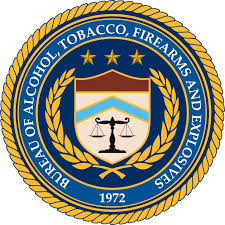Arsenal Attorneys™ help clients with address these issues on a daily basis, and we've taught this area of law and regulations to lawyers across America. We recommend using a trust as the applicant on a Form 4 because our client, acting as trustee of his own trust, may authorize other eligible people to possess the trust’s NFA firearms. Additionally, the trust could provide an estate plan allowing successor and beneficiaries to keep those NFA firearms without the need for a public probate court process.
Are you interested in owning a silencer? Read the Arsenal Gun Trust™ Tutorial and FAQs to learn how to properly register, handle, and inherit NFA firearms, including short barrel rifles and machine guns.
Arsenal Attorneys™ serve clients in the area of firearms law. The firm serves clients across America from its headquarters in the metro-Washington, DC area. The firm is particularly renowned for its Arsenal Gun Trust, a solution helping clients in the registering, handling, and estate planning of firearms, particularly those regulated under the National Firearms Act. Arsenal Attorneys' team includes lawyers licensed to practice law in nearly every state where NFA firearms are lawful to possess.
We currently serve clients in the following states (subject to change): Alabama, Alaska, Arizona, Arkansas, Colorado, Connecticut, Florida, Georgia, Idaho, Indiana, Kansas, Kentucky, Louisiana, Maryland, Michigan, Mississippi, Missouri, Nevada, New Hampshire, New Mexico, North Carolina, Ohio, Oklahoma, Oregon,Pennsylvania, Tennessee,Texas, Utah, Vermont, Virginia, Washington, and West Virginia.
This information is provided for informational purposes only, and it is not legal advice, nor does it establish an attorney-client relationship.

 ATF provided an explanation of the common errors made on its "
ATF provided an explanation of the common errors made on its " Arsenal Attorneys and our Arsenal Gun Trust services will be featured in an upcoming online seminar on August 20 for lawyers concerning estate planning for firearms entitled, "
Arsenal Attorneys and our Arsenal Gun Trust services will be featured in an upcoming online seminar on August 20 for lawyers concerning estate planning for firearms entitled, " This is the latest in a series of blogs summarizing state laws concerning firearms regulated under the National Firearms Act (“NFA”). It is not intended to be a comprehensive explanation of the law, nor is it intended as legal advice. You should always consult an attorney to determine how the law applies to particular circumstances. In this installment, we review Virginia law on silencers. Follow us to learn how various states regulate silencers and other NFA firearms, such as short barrel rifles and machine guns.
This is the latest in a series of blogs summarizing state laws concerning firearms regulated under the National Firearms Act (“NFA”). It is not intended to be a comprehensive explanation of the law, nor is it intended as legal advice. You should always consult an attorney to determine how the law applies to particular circumstances. In this installment, we review Virginia law on silencers. Follow us to learn how various states regulate silencers and other NFA firearms, such as short barrel rifles and machine guns. Arsenal Attorneys serve clients in the area of firearms law. The firm serves clients across America from its headquarters in the metro-Washington, DC area. The firm is particularly renowned for its Arsenal Gun Trust, a solution helping clients in the registering, handling, and estate planning of firearms, particularly those regulated under the National Firearms Act. Arsenal Attorneys' team includes lawyers licensed to practice law in nearly every state where NFA firearms are lawful to possess.
Arsenal Attorneys serve clients in the area of firearms law. The firm serves clients across America from its headquarters in the metro-Washington, DC area. The firm is particularly renowned for its Arsenal Gun Trust, a solution helping clients in the registering, handling, and estate planning of firearms, particularly those regulated under the National Firearms Act. Arsenal Attorneys' team includes lawyers licensed to practice law in nearly every state where NFA firearms are lawful to possess.